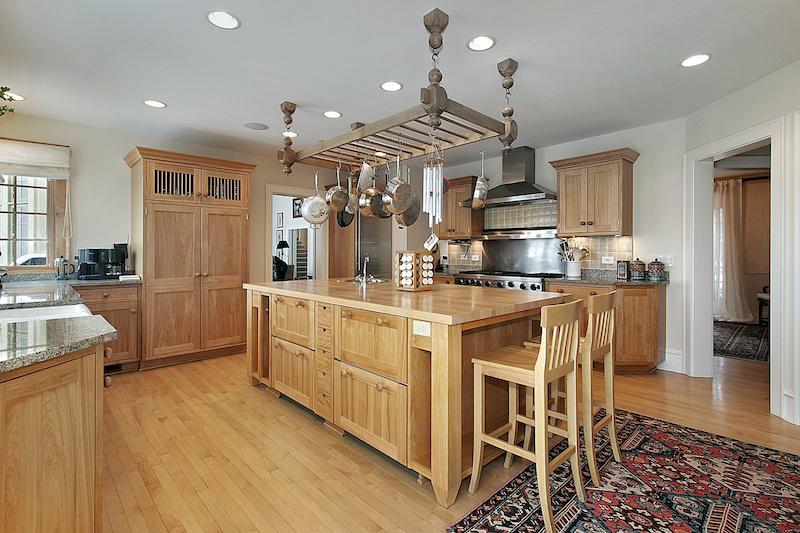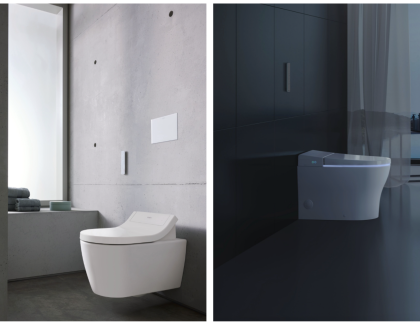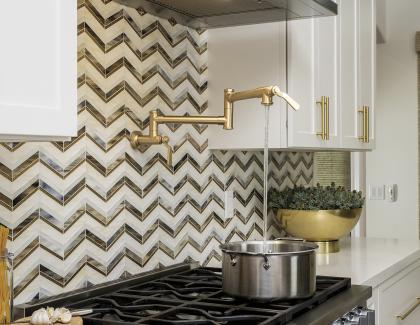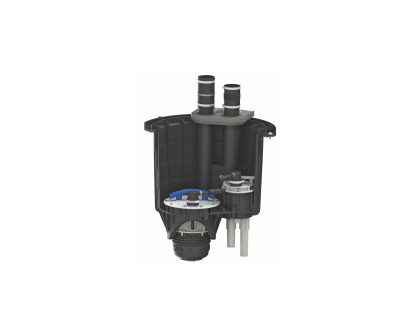Butcher block countertops can add natural warmth to a kitchen, but keeping the surface clean and maintaining the wood can be a daunting task if you don’t know how to handle it.
There is a lot to love about butcher block countertops. The natural wood adds beauty to the kitchen while being both sustainable and functional: The wood is renewable and the entire countertop can become a cutting board with the right care, according to Walnut Wood Works, a company that specializes in butcher block countertops.
But because butcher block countertops are not waterproof, consumers must take special measures to prevent water damage. This can be done via oils and finishes that help the countertop retain the right amount of moisture while keeping excess water out, Walnut Wood Works notes. If consumers want to use the entire countertop as a cutting board, they must continuously treat it with oil to keep it food safe. The company also notes that while they are beautiful options that go with many kitchen styles, butcher block countertop maintenance is a must. Butcher block countertops are prone to scratches and dents and may need to be refinished to eliminate blemishes—or consumers can embrace the look and let it patina.
To take care of an unfinished butcher block countertop, owners must use mineral oil to maintain the proper moisture and keep the board from drying out, another butcher block countertop specialist firm, Chicago Butcher Block, says.
Sometimes this extra step can be intimidating, but for those who want to take the plunge into wood, PRODUCTS set out to demystify butcher block counter maintenance with Pete Grossman of Chicago Butcher Block, a family-run business specializing in custom wood islands, countertops, tables, and cutting boards.
[Related: 5 ECO-FRIENDLY COUNTERTOPS THAT ADD BEAUTY WITH A SUSTAINABLE FLAIR]
Here are some other things to know about wood/butcher block countertops:
1. What are the benefits of a butcher block countertop versus other options?
Butcher block countertops offer a natural warmth not seen in stone and other synthetic materials. These tops develop a beautiful patina over time, and if the user wants to rejuvenate them down the road, they can be sanded down and oiled, or refinished to look like new. We regularly get 30-to-40-year-old butcher block counters in our shop for refinishing and repair. They can last a lifetime.
2. Are there any considerations that people should take before deciding on a butcher block?
Sizing. When choosing edge grain, most manufacturer's largest sizes range from about four-to-five feet wide and 12-feet long. Tops larger than that typically need to be joint fastened together on-site. The standard thickness typically offered is 1.5 inches for edge grain, and the minimum for end grain tends to be between 2.25-to-3 inches thick. Through Michigan Maple Block or John Boos & Co, end grain tops are typically not made any larger than 42x72 inches.
[Related: 6 ALTERNATIVE COUNTERTOP OPTIONS YOU MAY NOT KNOW]
3. Is there a best wood for butcher block countertops?
I wouldn't say there is a single best wood, but I would avoid using softwoods and stick to hardwoods like maple, which has always been synonymous with butcher block, or cherry, black walnut, and oak.
4. Are there any installation differences between butcher block counters and other types?
Unlike stone, which is typically installed with silicone and tremendously heavy, wood countertops can be installed with only a few wood screws drilled up through your base cabinets. The job is simple enough for homeowners who are handy and most contractors or carpenters.
5. What are the top mistakes you see people make with their butcher block counter care, and how can they be avoided?
One of the top mistakes we see is gluing the counters to base cabinets, which restricts the top’s ability to expand and contract. This in turn causes the top to develop splits and warp. The other mistake we see is people using vegetable oil or olive oil instead of mineral oil. Since they are derived from food, they can go rancid and spoil. Outside of that, the other one is putting hot pots and pans directly from the stove, which will burn just about any wood and wood finish.
6. Do you have any maintenance/care tips?
General care will depend on the type of finish that is applied to your butcher block and the type of use. If you have a mineral-oiled block, you will need to oil your counter once a month for the life of the top. Many manufacturers also offer polyurethane-type finishes as an option and that does not require regular upkeep. With either finish type, the tops can be cleaned with a damp soapy rag and then wiped dry. It is important to wipe any standing water off and to keep hot objects like pots and pans from directly touching the counter.
7. Any recommendations for products to use on the butcher block that have worked out best for you?
We mostly use "Emmet's Good Stuff" polyurethane finish from Michigan Maple Block Co., or their proprietary Durakryl 102 finish, which come standard on their countertops, whom we are primarily a distributor for. They also make a mineral oil based conditioner called "Emmet's Elixir,” which is mineral oil mixed with beeswax and lemon and rosemary scents that protects oiled tops better than straight mineral oil. The other alternative finishes that we have had good luck with are Waterlox and Odie's Oil.

[Related: BUILDING A CUSTOM HOME IN 2019? 11 LUXURY PRODUCTS TO CHECK OUT NOW]








Add new comment